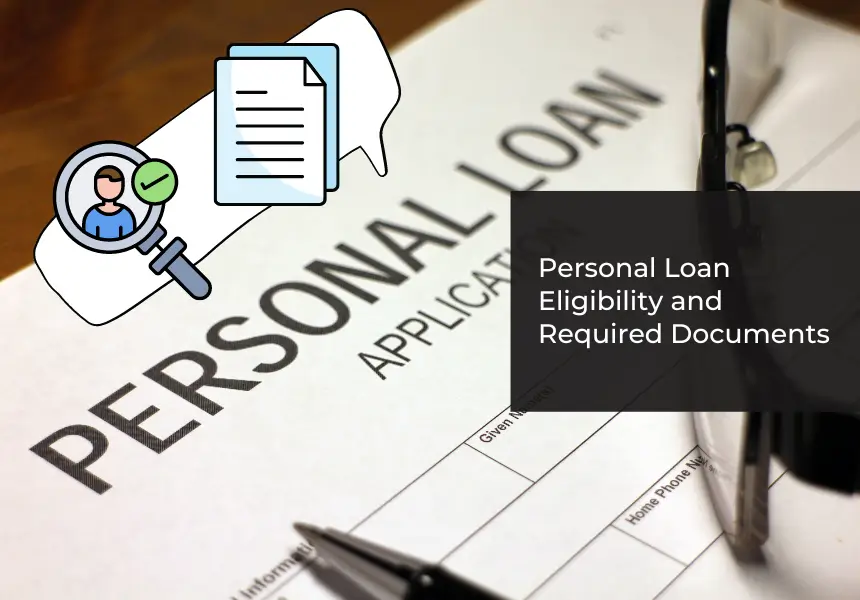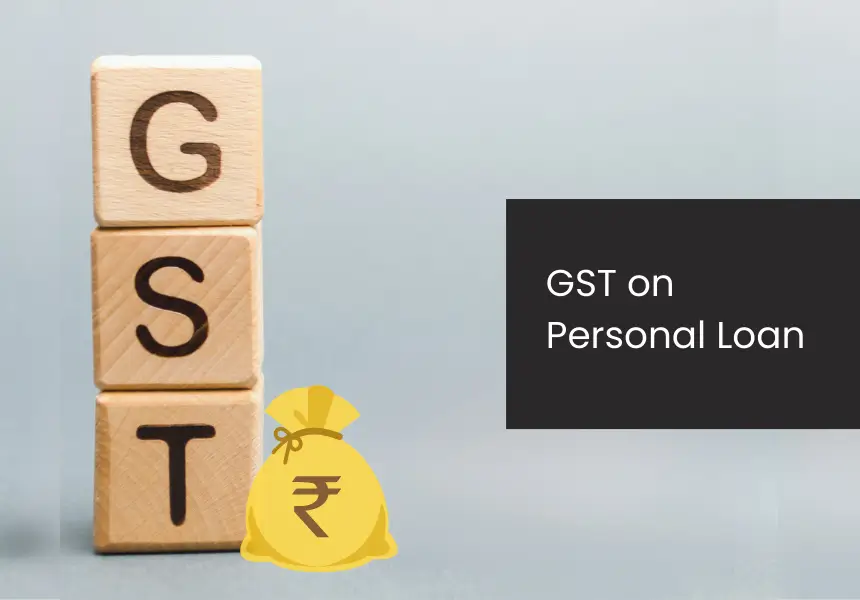
A personal loan is a quick solution to financing expenses such as vacations, home renovations, debt consolidation, and even unexpected medical expenses. However, before you apply for a personal loan, you must provide the right documents and meet the eligibility criteria.
Here, we will look at the eligibility criteria and the documents required for personal loan so that you can easily apply for one.
Personal Loan Eligibility
The personal loan eligibility varies depending on the lender. However, below are the basic eligibility criteria required to apply for a personal loan from LoanTap. The applicant must:
- Be a citizen of India
- Be at least 23 years of age
- Be employed by any public, private, or LLP company
- Be employed for at least a year
- Have a minimum monthly income of ₹30,000
- Have a credit score of 700 or higher
Personal Loan Documents
Once you have met the eligibility requirements, you will have to provide a few important personal loan documents.
Here are some of the common documents required for personal loans:
1. Identity Proof
a. PAN card
b. Aadhaar card
c. Driving License
2. Address Proof
a. Electricity bill
b. Rent agreement
c. Indian passport
3. Income proof
a. Latest salary slip from the current employer
b. Original bank statement for the last three months in PDF format
4. Employment proof
a. Offer letter
b. Monthly salary slip
c. Copy of the employment contract
Factors that Affect Your Personal Loan Eligibility
There are several factors that affect your eligibility when applying for a personal loan. While income is significant, other aspects like credit score, age, and job stability are also important. Here are five factors that can impact your personal loan eligibility:
1. Credit Score
Your credit score represents your financial history and repayment habits. Since personal loans are unsecured, a credit score of 700 or above is essential to get your application approved by most lenders. A good credit score provides proof of timely repayments, making you a low-risk borrower. A lower score, however, decreases the chances of your personal loan application getting approved and may also result in higher interest rates.
2. Monthly Income
Lenders check your monthly income to ensure it is sufficient to cover loan EMIs. Banks and NBFCs generally require a minimum income of ₹25,000, which can vary depending on the lender, location, and loan amount. Additionally, your debt-to-income ratio is also important. A lower ratio means your monthly expenses, including debts, do not take up a significant portion of your income.
3. Age
Lenders also consider your age to assess your repayment ability. Generally, they require applicants between the ages of 21 and 60.
4. Job Stability
Stable employment enhances personal loan eligibility. Lenders prefer applicants with a consistent income and at least two years of experience in the same industry. Frequent job changes may demonstrate financial instability.
How to Improve Personal Loan Eligibility?
Improving your personal loan eligibility can make the loan approval process easier and help you secure better terms, such as lower interest rates. Here are some strategies to enhance your eligibility:
1. Maintain a High Credit Score
Lenders check your credit score while evaluating your personal loan application. A score of 700 or above is usually seen as ideal. To improve your credit score, you must pay your credit card bills or loan EMIs on time and reduce your outstanding debts. Maintaining a good credit score can help you negotiate better interest rates and increase your chances of loan approval.
2. Improve Your CIBIL Score
You must take steps to improve your CIBIL score if it is lower than required before you apply for a personal loan. For this, you must focus on repaying any outstanding credit card dues and try to minimize your credit utilization. Moreover, avoid taking on new debts and focus on reducing unnecessary expenses.
3. Increase Your Income
A higher income assures lenders that you can repay the loan. You can consider increasing your income through bonuses, variable pay, or investments. This strengthens your repayment capability and gives lenders confidence in your financial stability.
4. Reduce Your Debt-to-Income Ratio
Your debt-to-income ratio is the percentage of your total monthly debt payments to your gross monthly income. Ideally, this ratio should be below 35% to demonstrate your ability to manage additional loans. Reducing existing debt, such as paying off other loans or credit card balances, can improve your chances of loan approval.
5. Opt for a Longer Tenure
Choosing a longer loan tenure can reduce your monthly EMI payments, making it easier to manage the loan. However, remember that longer tenures may result in higher overall interest payments.
6. Avoid Multiple Loan Applications
Submitting multiple loan applications to different lenders can negatively impact your credit score due to multiple hard inquiries. Instead, you can consider applying with a single RBI registered lender, ensuring you meet the eligibility criteria provided. This approach can increase you chances of approval while also protecting your credit score.
Summary
You must meet the personal loan eligibility requirements and provide the right documents for an easy personal loan application process. A strong credit score, steady income, and accurate paperwork can increase your chances of approval.
LoanTap offers personal loans with minimal documentation, making the process quick and stress-free. LoanTap’s personal loans come with quick approvals, flexible repayment options and no hidden charges to ensure you get financial support with ease and convenience.
Frequently Asked Questions
Can I secure a personal loan if I have a low credit score?
It may be possible to secure a personal loan with a low credit score but your options will be limited. You may also have to pay higher interest rates or provide additional documentation and some lenders may even ask for collateral.
Can self-employed individuals apply for a personal loan?
Yes, self-employed individuals can apply for personal loans. However, they may need to provide additional documents, such as income tax returns, business proof, and bank statements, to prove their income.
Is there any requirement for job stability to get a personal loan?
Most lenders require applicants with at least an experience of 1-2 years in their current job or business, as this shows financial stability.
What are the common reasons for personal loan rejection?
Common reasons include low credit score, insufficient income, incomplete documentation, or failure to meet the lender’s eligibility criteria (e.g., age or job stability).
Can I apply for a personal loan without a guarantor?
Yes, personal loans are generally unsecured loans, which means that there is no need to pledge collateral. However, if your credit score is low, some lenders may require a guarantor.
Do I need to submit my income tax returns (ITR) to apply for a personal loan?
Salaried individuals usually do not need to submit ITR unless specified by the lender. However, self-employed individuals must provide ITR for the last 2-3 years to prove their income.
Can I apply for a personal loan online?
Yes, most lenders provide personal loans online. You can upload your documents digitally, making the process faster and more convenient.








